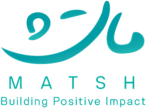Adopting agile practices improves project outcomes, but many lack formal agile training. Without expertise in agile principles, frameworks, and tools, project teams underperform. This course provides comprehensive education in foundational agile PM to drive project excellence.
Mastering agile project management delivers compelling benefits:
- Improve speed, adaptability, quality, and customer satisfaction
- Deliver more value more frequently through iteration
- Empower self-organizing teams and collaboration
- Continuously improve through inspection and adaptation
- Respond quickly to change and learning
- Reduce risk and optimize outcomes
- Gain in-demand skills to advance your PM career
With practical training focused on real-world application, this course provides the knowledge, mindsets, and methods to maximize the value of projects in uncertain, fast-changing environments.
Course Overview
This intensive course provides interactive online education in agile project management through lessons, exercises, and simulations.
With a focus on practical application, learners apply concepts through agile games and real-world case scenarios. Core modules cover agile principles, values, team dynamics, frameworks like Scrum and Kanban, backlogs, iteration planning, standups, retrospectives, and more.
The course equips learners with practices and tools to incorporate agility into all aspects of project initiation, planning, execution, monitoring, adaptation, and closing. By conclusion, learners can confidently utilize agile PM to enhance outcomes.
Who Should Take This Course
Both new and experienced project managers, coordinators, and team members interested in applying agile practices.
What You’ll Learn
- Agile values, principles and mindsets
- Scrum roles, events, artifacts and techniques
- Facilitating self-organizing agile teams
- Developing user stories and managing backlogs
- Sprint planning, execution, reviews, retrospectives
- Responding to change through continuous improvement
- Using agile estimation, metrics, and reporting
Course Content
Foundations of Agile Project Management
- Intro to Values, Principles, Mindsets, Frameworks
- Exploring the Agile Manifesto
- Understanding Agile principles
- Shifting from a traditional to an Agile mindset
- Overview of popular Agile frameworks (e.g., Scrum, Kanban)
- Contrast with Traditional PM Approaches
- Identifying differences in values and principles
- Understanding the mindset shift
- Comparing and contrasting Agile with Waterfall methodologies
Scrum Roles and Responsibilities
- Product Owner, Scrum Master, Team Functions
- Defining the role of the Product Owner
- Exploring the responsibilities of the Scrum Master
- Understanding the functions and collaboration within the development team
Managing Product Backlogs
- Developing User Stories, Acceptance Criteria
- Creating effective user stories
- Defining clear acceptance criteria
- Ensuring alignment with stakeholder expectations
- Prioritizing Features, Estimating Size
- Techniques for prioritizing backlog items
- Approaches to estimate the size of user stories
- Balancing business value and technical dependencies
Sprint Planning and Execution
- Determining Sprint Length, Scope, Goals
- Factors influencing sprint length
- Defining sprint scope and goals
- Ensuring alignment with project objectives
- Running Daily Standups, Completing Tasks
- Conducting effective daily standup meetings
- Managing and completing tasks during sprints
- Encouraging collaboration and communication within the team
Reviews, Retrospectives, Adaptation
- Demoing Work, Gathering Feedback
- Showcasing sprint outcomes during reviews
- Gathering constructive feedback from stakeholders
- Incorporating feedback for continuous improvement
- Analyzing Team Dynamics and Processes
- Assessing team collaboration and communication
- Identifying strengths and areas for improvement
- Adjusting processes to enhance team performance
Scaling Agile Practices
- Extending Agility Across Programs and Portfolios
- Applying Agile principles at a program level
- Integrating Agile practices into portfolio management
- Addressing challenges in scaling Agile for larger projects
- Hybrid and Adaptive Life Cycle Approaches
- Understanding hybrid project management approaches
- Integrating Agile with traditional project management
- Adapting life cycle approaches based on project requirements
Upon completion of this course, participants will have a solid understanding of Agile Project Management principles, Scrum practices, and the ability to apply Agile methodologies to a variety of project scenarios, from small teams to larger programs and portfolios.
Frequently Asked Questions
What experience level is required for this course?
It’s designed for professionals of all levels new to agile practices.
What is the learning format and duration?
This intensive course is available via 3, 5, or 10-day live online or class training.
What materials or software is required?
Just a computer to access the online course site and tools.
Does this course lead to certification?
Yes, learners will earn an Agile PM Foundations certification.
Can multiple people from my company enroll?
Absolutely, group discounts are available.
Is pre-work required prior to class?
No pre-work is required, but we recommend reviewing primer materials.

